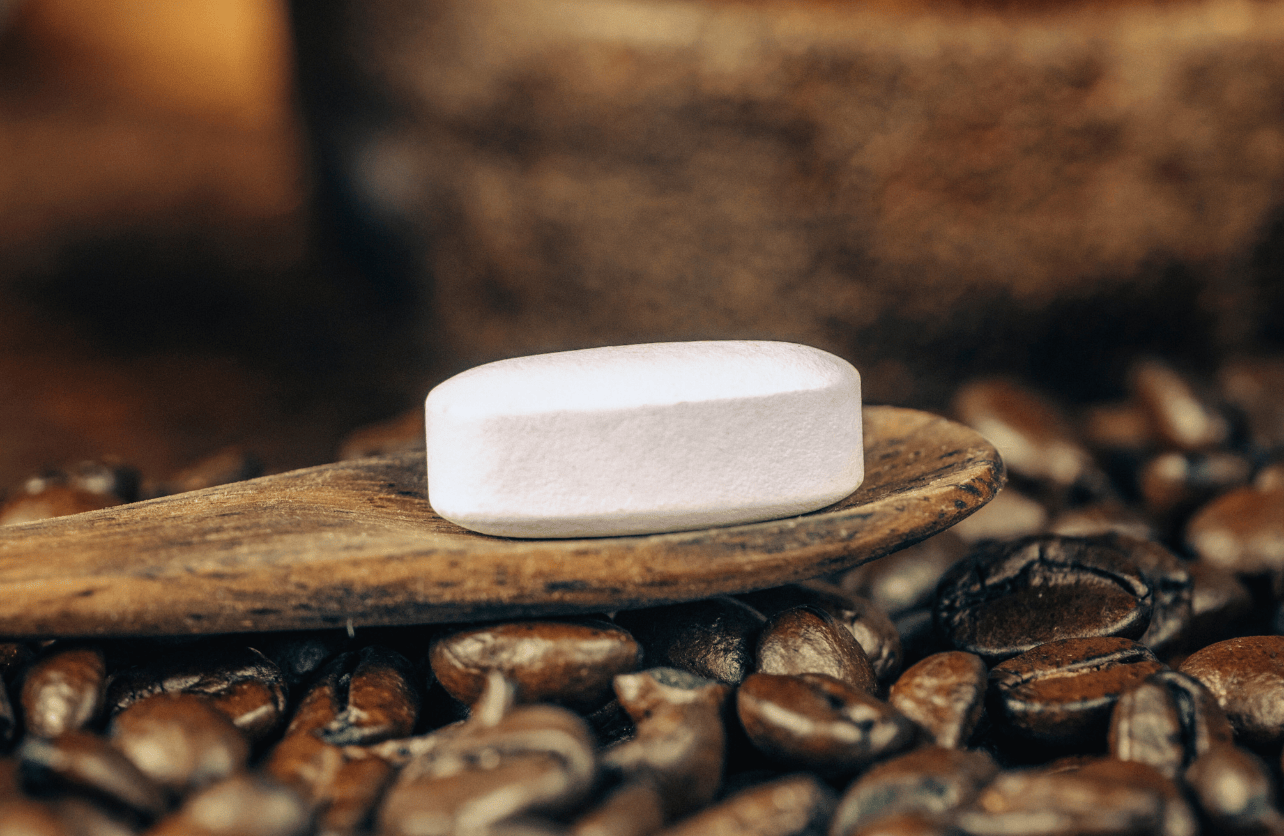Caffeine Gum vs. Coffee: Which One Gives a Better Energy Boost?

Caffeine is the world’s go-to stimulant, whether in the form of a hot cup of coffee or a quick chew of caffeine gum. But when it comes to staying alert, which one actually provides the better energy boost? While coffee has long been the default choice, caffeine gum has been gaining traction as a faster, more convenient alternative. But does it truly deliver the same effectiveness—or better?
How They Work: Absorption and Speed
Coffee: The Slow and Steady Approach
When you drink coffee, caffeine is absorbed primarily through the digestive system. Once it reaches the stomach and small intestine, it enters the bloodstream and begins to take effect within 30 to 45 minutes. The peak energy boost usually occurs around one hour after consumption, with effects lasting anywhere from 3 to 5 hours, depending on metabolism and caffeine tolerance.
Coffee’s slow absorption means it delivers a gradual, steady release of energy rather than an instant jolt. However, it also means that if you need a fast wake-up call, coffee may take too long to kick in.
Caffeine Gum: The Faster Alternative
Caffeine gum, on the other hand, works through buccal absorption, meaning the caffeine is absorbed directly through the thin mucous membranes in your mouth. Instead of waiting for digestion, the caffeine enters the bloodstream almost immediately, with noticeable effects in as little as 5 to 10 minutes.
Because of this rapid absorption, caffeine gum delivers an energy boost much faster than coffee. However, it also wears off sooner—typically within 1 to 2 hours—which means it may require more frequent dosing throughout the day.
Effectiveness of the Energy Boost
When it comes to overall effectiveness, the best option depends on what kind of energy boost you’re looking for:
- Need an immediate energy boost? Caffeine gum works faster and is ideal for situations where you need to be alert instantly, such as before a workout, a long drive, or a late-night study session.
- Want a sustained energy release? Coffee provides a longer-lasting boost, making it a better option if you want to stay awake for several hours without needing a second dose.
How Much Caffeine Are You Actually Getting?
The amount of caffeine you consume plays a big role in how effective the energy boost will be. Here’s how caffeine levels compare:
- A standard cup of coffee (8 oz) contains 80-100 mg of caffeine, though this can vary depending on the type of coffee bean, brewing method, and serving size. Some stronger coffee options, like espresso or cold brew, pack even more caffeine per ounce.
- A typical piece of caffeine gum contains anywhere from 40-100 mg of caffeine, depending on the brand. Some brands offer “extra strength” versions with higher doses per piece.
Because caffeine gum often contains similar levels of caffeine per piece as a cup of coffee, it can deliver an equivalent energy boost in a much shorter time. However, the effects fade faster, meaning it may require multiple pieces throughout the day to maintain energy levels.
Other Factors to Consider
Convenience and Portability
Caffeine gum is far more portable and convenient than coffee. It doesn’t require a coffee maker, hot water, or even a cup—you simply pop a piece in your mouth and chew. This makes it particularly useful for on-the-go situations like commuting, hiking, or working long shifts.
Coffee, while enjoyable, isn’t always the most practical option, especially if you don’t have time to brew a fresh cup. However, many people enjoy the ritual of drinking coffee, which can be a comforting and relaxing part of their daily routine.
Taste and Enjoyment
For many people, coffee is more than just a source of caffeine—it’s an experience. The aroma, warmth, and flavor of a good cup of coffee can be a moment of relaxation in an otherwise hectic day.
Caffeine gum, while efficient, doesn’t provide the same sensory satisfaction. Some brands add artificial flavors, but overall, it’s a more functional rather than enjoyable way to consume caffeine.
Side Effects and Stomach Sensitivity
One advantage of caffeine gum is that it bypasses the digestive system, which makes it easier on the stomach. Coffee, on the other hand, can sometimes lead to acid reflux, bloating, or digestive discomfort, particularly for those with a sensitive stomach.
However, caffeine gum isn’t perfect—chewing too much can sometimes lead to jaw fatigue or digestive upset, especially if it contains sugar alcohols or artificial sweeteners.
Which One Is Better?
So, does caffeine gum or coffee provide a better energy boost? It depends on what you need:
- If speed is your priority, caffeine gum wins. It delivers caffeine almost instantly, making it great for last-minute energy needs.
- If you prefer a longer-lasting effect, coffee is the better choice. It provides a smoother, more sustained energy boost over several hours.
- If convenience matters, caffeine gum is the clear winner. No need for brewing or carrying a cup around.
- If taste and enjoyment matter, coffee takes the lead. Nothing beats the comfort and ritual of a well-brewed cup.
Ultimately, both have their place in a caffeine lover’s routine. For a quick fix, caffeine gum is unbeatable. But for a more enjoyable, long-lasting experience, coffee still holds the crown.
Would you swap your morning coffee for caffeine gum, or is the ritual too hard to give up? ☕💭
Building a Stronger You
Supplement Institute is the fruit of extensive online publishing experience, spanning the breadth of SEO strategies to the nuances of paid advertisements. Our journey, marked by significant achievements and learning moments, inspires our core mission: to empower our readers with an abundance of information. By sharing insights and key learnings, we aim to provide you with the knowledge needed to navigate the complex world of supplements, helping you make well-informed decisions for your health and well-being. Welcome to Supplement Institute, where information is your greatest supplement.